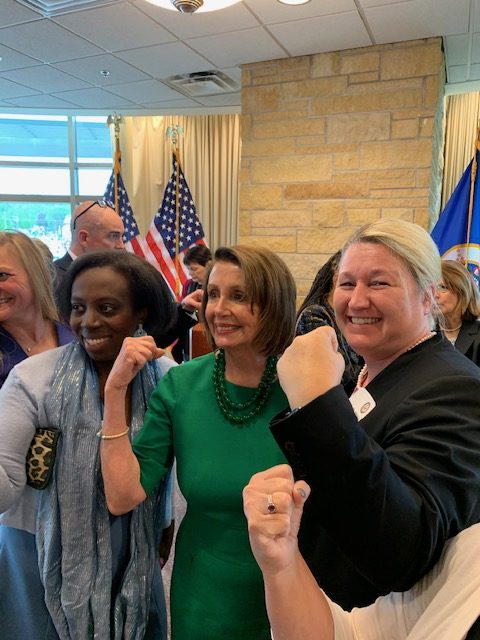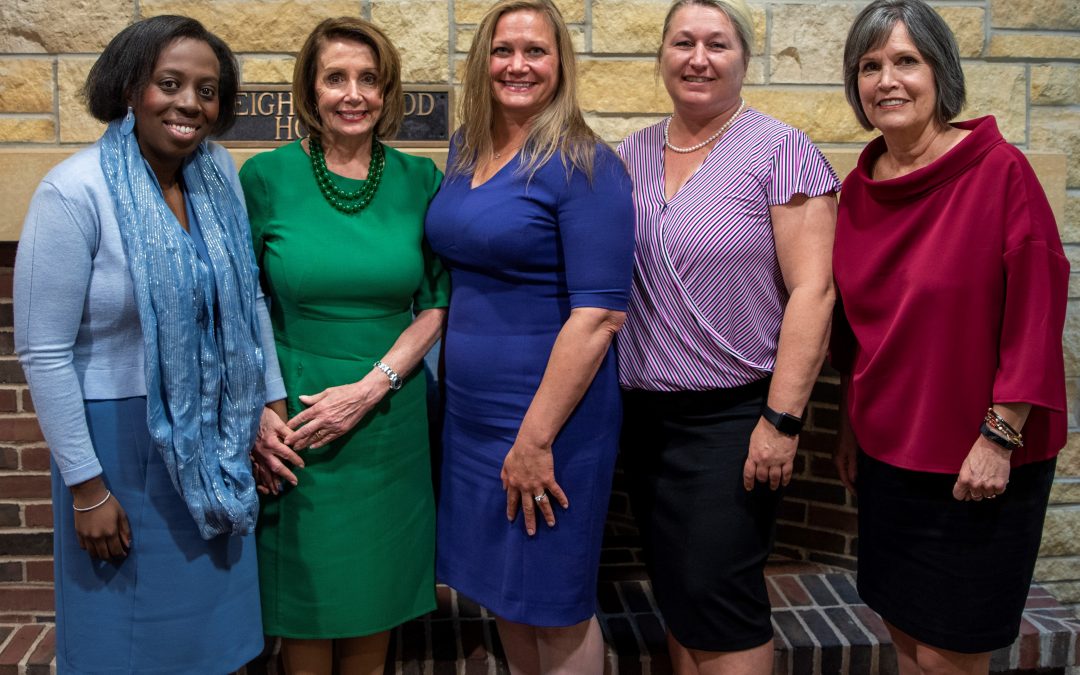UFM Board Member Ann Poole Nyakundi, House Speaker Nancy Pelosi, UFM Board Chair Kim Hyers, UFM CEO Melissa Parker, Congresswoman Betty McCollum
UFM a strong advocate for local community health centers
ST. PAUL, MINN. – June 4, 2019 – United Family Medicine CEO Melissa Parker joined Speaker of the U.S. House of Representatives Nancy Pelosi, Congresswoman Betty McCollum (DFL-Minn.) and Lieutenant Governor Peggy Flanagan for a round table discussion on healthcare along on May 24 in St. Paul.
The round table focused on strengthening community health centers, and how federal, state, and local leaders can help support the important services they provide to communities across the country. Parker joined Minnesota Community Care and Open Cities Health Center’s CEOs to advocate for the community health center model and help demonstrate its vital impact on communities and families.
“Adverse employment conditions, social exclusion, gender and race-based inequities, housing instability — we see them all at our Community Health Centers, said Parker. “We don’t just provide access, we build healthy communities, which are only possible through the enabling services we provide our patients.”
One of the key issues Parker discussed at the round table was the affordable medication crisis. She underscored how critical the federal government’s 340B Drug Discount Program has been to help keep prescription medication costs down for patients who need them most.

“At community health centers, 340B discounted medications are critical for our patients whose basic access to medication is barred by the outrageous cost,” said Parker. “This is the only hope for some of our patients who need insulin, inhalers or psychiatric medication. 340B allows patients to afford their medications when they need them most, and avoids costly hospitalization.”
Parker was a leading participant in the discussion, answering several questions from attending lawmakers. She also advocated for funding to support whole health, stressing the importance of services provided on the front line by interpreters, patient advocates, lawyers and social workers.
“While none of these wrap-around, enabling services are reimbursable, they are critical to supporting the health of our patients,” said Parker. “You can fix a tooth, work through depression, and follow up on your high blood pressure in one place, without worrying about what language you speak or if this will use up your grocery money. This is what makes community health centers a treasure for this nation and a model for the entire health industry.”
About United Family Medicine
United Family Medicine is an independent, nonprofit provider of primary health care, mental health, dental, obstetrics, disease screening, preventative care, chronic disease management, with on-site lab and x-ray facilities, plus guided access to local pharmacy discount programs, social services, legal counsel and interpreter services as well as home to the United Family Medicine Residency Program.
Each year, UFM clinicians work with more than 14,000 patients. The mission of United Family Medicine is to meet the needs of the medically uninsured, underinsured and underserved residents. For more information, visit: UnitedFamilyMedicine.org

